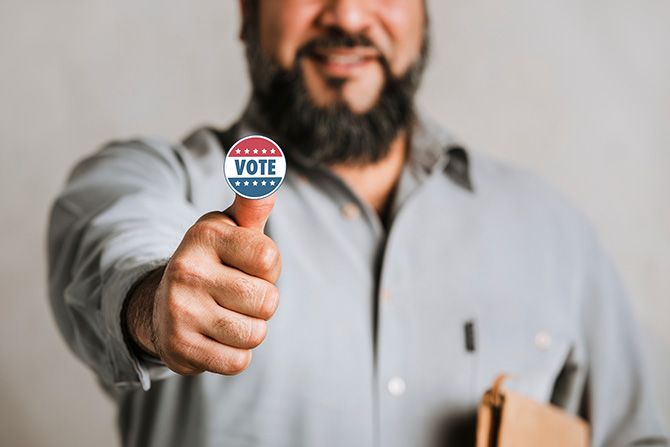There has been a dramatic spike in the number of lemon lawsuits filed in California over the last few years, and the recent trend has been for plaintiffs’ attorneys to name the selling and/or repairing dealerships as defendants. According to recent reports, there were 22,655 new lemon law cases filed in California in 2023, which represents an increase of 52% over 2022.1 According to a study performed by manufacturer defense counsel Bowman and Brooke, filings in Los Angeles County’s local branch courthouses alone saw a dramatic increase of 1,400% in the number of filings between 2021 and 2023. By all indications, this trend is not slowing down, and dealers need to be aware of the impact on their stores and the steps they can take to best protect their interests.
History of California’s Lemon Law
California first enacted the Song‑Beverly Consumer Warranty Act in 1970 to protect consumers from defective goods, including motor vehicles, and required manufacturers to repurchase or replace new vehicles that could not be repaired after a reasonable number of attempts. California’s lemon law has been amended several times since the original law was enacted to clarify the definition of what constituted a reasonable number of repair attempts, to expand the law to include the sale or lease of used vehicles that were still covered under the manufacturer’s new vehicle warranty, to apply the law to vehicles purchased and used primarily for business reasons (provided the vehicle weighed less than 10,000 pounds and the business had five or fewer vehicles registered in its name), and to create a presumption that a vehicle qualifies for repurchase or replacement if there have been four or more unsuccessful repair attempts (or two or more failed attempts if the defects presented a significant safety hazard), or if the vehicle has been at the dealership for more than 30 days for repairs within the first 18 months or 18,000 miles, whichever occurs first.2 The California lemon law further states that if the buyer can establish that the failure to comply with the provisions of the statute was willful, then the buyer may be entitled to a civil penalty of up to two times the amount of his/her damages.3 A buyer that prevails under the lemon law is also entitled to recover his or her attorney’s fees and costs. Not surprisingly, it is often the buyer’s attorneys’ fees and costs that are the driving force in the prolonged litigation and increasing numbers of filings of lemon law claims.
Why Are So Many Dealerships Now Being Named in Lemon Lawsuits?
While lemon lawsuits were traditionally a manufacturer’s issue, plaintiffs’ attorneys are now regularly naming the selling dealer and/or the repairing dealer in their lawsuits. There are various reasons why dealers are now being included in the lawsuits, including plaintiffs believing they have an extra potential pocket to pick for the recovery of damages (or a settlement), the ease in obtaining the dealership’s sales/lease and service records and depositions of dealer personnel through traditional discovery methods without having to subpoena the dealerships, and perhaps most importantly, to block the manufacturers from having the lemon lawsuits removed from state court into federal court. Most manufacturers prefer to defend lemon law claims before a federal judge (as opposed to state judges) because federal courts typically streamline the process and timeline, keep the plaintiff’s counsel on a tighter leash by limiting the number of depositions the buyer’s attorney may take and significantly reduce the length of the trial by giving each side an allotted time to present their case and not allowing witnesses that will simply repeat what has already be presented to the court. Therefore, plaintiffs’ attorneys will often include the repairing dealer(s) in order to attempt to destroy the federal diversity jurisdiction (which allows federal courts to hear cases involving “citizens” of different states). By naming a California dealership in the lawsuit, filed by a California plaintiff, the diversity of citizenship requirement cannot be met, and the case will be sent back to state court. The result is that plaintiffs’ counsel now regularly name dealers for “negligent repair” causes of action with no real evidence of any actual negligent by the dealership in diagnosis or repairing the vehicle, and with no real intent to actually litigate against the dealers since plaintiffs are not able to recover attorneys’ fees on a negligence claim.
What Should a Dealer Do When It Is Served With a Lemon Lawsuit?
Dealerships should immediately forward any lemon lawsuits in which they are named to their manufacturer and request defense and indemnification. Both dealer sales and service agreements and California law provide dealers with potential rights on lemon law claims. Specifically, Vehicle Code Section 11713.13(f)(1) provides that it is unlawful and a violation of the Vehicle Code for a manufacturer/distributor to fail, upon demand, to indemnity an existing or former dealer from claims resulting from “(A) The condition, characteristics, manufacture, assembly or design of any vehicle, parts, accessories, tools or equipment, or the selection or combination of parts or components manufactured or distributed by the manufacturer or distributor.” If a dealer doesn’t know where to send the lawsuit and its tender, it should review its dealer sales and service agreement (which often provides the specific address and/or department where the lawsuits should be sent), ask its manufacturer/distributor’s regional team, or forward it to its manufacturer/distributor’s legal department. It is important to forward the lawsuits as soon as possible since the manufacturer may take upwards of a couple of weeks to a couple of months to review and respond to the tender. In the meantime, the dealership will, in most circumstances, only have 30 days from its receipt of the lawsuit to file a response to the complaint. It is very important for a dealer to make sure it timely responds to the complaint, or else it risks having the plaintiff’s counsel obtain a default against it. Because many of the newer breed of lemon lawsuits include a negligent repair claim against the dealer, some of the manufacturers may deny the tender outright and tell the dealer it will have to defend itself in the lawsuit, which will require the dealership to hire its own attorney to respond to the complaint and defend the lawsuit. Other manufacturers may agree to defend and indemnify its dealers on lemon lawsuits with negligent repair claims, but will propose an indemnification agreement with a carve-out for those claims alleged solely against the dealer.
What is Next on the Lemon Law Horizon?
New Legislation Proposed (AB 1755)
There is a new Assembly Bill (AB 1755) that recently passed the legislature that will change some of the processes in how lemon law cases are litigated. While it is not entirely clear from the bill whether dealers that are named in the lemon lawsuit are covered by the changes (which predominantly refers to the manufacturer/distributor), the bill will place limits on early discovery procedures, require mediation and limit the buyer’s ability to recover a civil penalty if the manufacturer timely offers to repurchase or replace the vehicle. At this writing, the bill is currently pending on Gov. Gavin Newsom’s desk.
Rodriguez v. FCA US LLC Appeal to California Supreme Court
In addition to AB 1755, there is currently a case pending before the California Supreme Court that will have a significant impact on lemon law cases for used vehicles sold with a remaining factory warranty. The California Supreme Court is scheduled to hear oral arguments in early September 2024 and must decide whether California’s lemon law statute applies to used vehicles that were not sold as CPO units but were purchased with a remaining new vehicle warranties. The lower court in the Rodriguez case found that the Lemon Law did not apply. While that result seems favorable, if the California Supreme Court upholds the prior ruling, it may lead to an increase in litigation against the selling dealers without any protection or indemnity from the manufacturer. We reasonably anticipate that if the Rodriguez decision is upheld by the Supreme Court, plaintiffs’ counsel will shift their focus to the selling dealer for claims related to the implied warranties that accompany the sale of a vehicle, fraud or negligent misrepresentation regarding the condition of the vehicle at the time of sale and the representations made by the sales staff, and Consumers Legal Remedies Act (CLRA) claims regarding the condition of the vehicle.
Manning, Leaver, Bruder & Berberich LLP is a Los Angeles law firm that practices throughout California and has been in existence for over 100 years. It has a strong automobile dealer practice covering all areas related to the automobile dealer industry, including dealership buy-sells, real estate transactions, business and consumer litigation, regulatory compliance, dealer association law and franchise law. See www.manningleaver.com for more information and areas of practice. Nothing in this article may be considered as legal advice. Contact legal counsel for legal advice.
- California’s Lemon Law: A Sweet Deal for Lawyers, Sour for Consumers by Kyla Christoffersen Powell, published in the Los Angeles Daily News on July 17, 2024.
- Civil Code Section 1793.22.
- Civil Code Section 1794(c).









